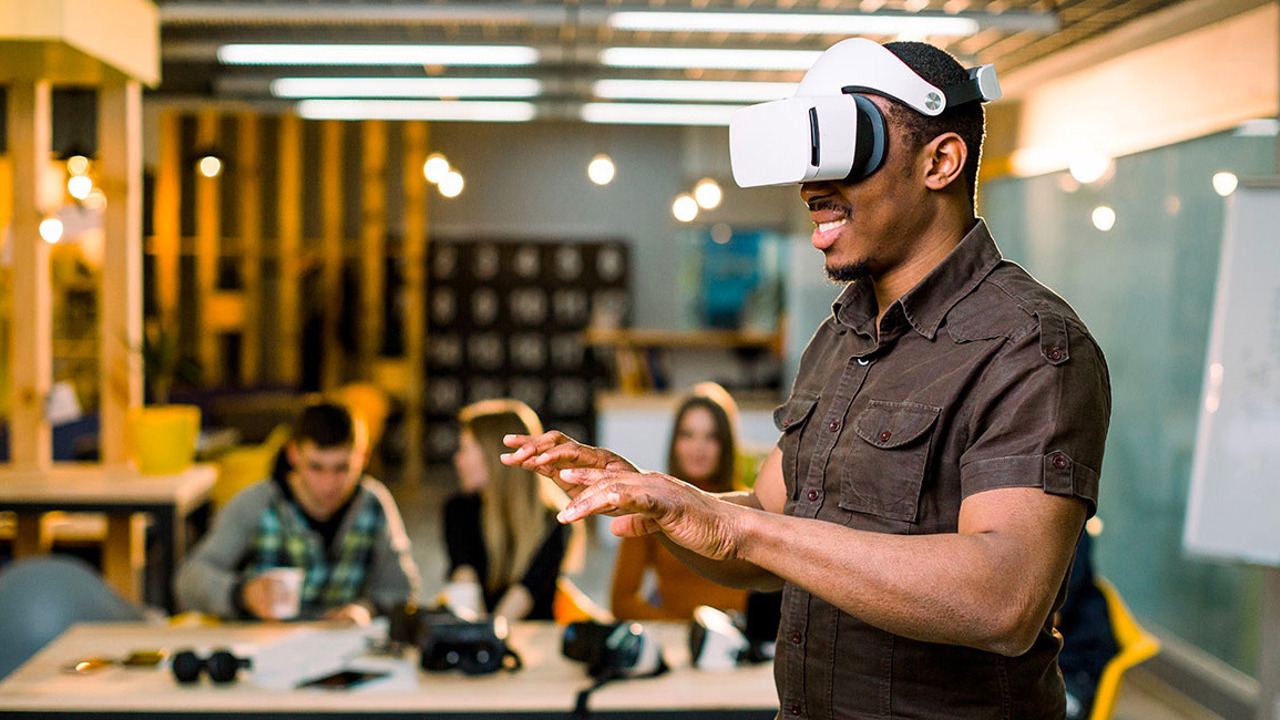How virtual reality training can make the workplace more inclusive
Hannah Sutcliffe, Co-Founder of MOONHUB, discusses how VR can help businesses with diversity and inclusion education.
By Hannah Sutcliffe
09 December 2021 • 3 minute read

Whilst it may have been the unexpected choice a decade ago, VR has propelled into becoming one of the most effective methods of training. Providing a safe environment to train people in areas that matter a lot when it comes to societal issues, such as racism, sexism and discrimination of any kind. EDI training is now at the forefront of a business’ mind, and it doesn’t have to mean sitting through what feels like a never-ending powerpoint presentation. Companies can look to VR for a truly impactful experience, and to elevate training to the next level.
How does VR help diversity and inclusion training?
VR transports trainees into a private and immersive environment. Here, mistakes can be made without being under the watchful eye of examiners, peers or anyone else that may pressure a trainee. Furthermore, D&I is an integral part of education in bringing our society to a place of more understanding, acceptance and integration. However, it’s often seen as a taboo subject, with people reluctant to engage out of fear of “getting it wrong” or being made to look like they’re ignorant on a certain topic. VR is a safe space to learn from any mistakes.
According to a 2020 PwC study, 75% of VR trainees defined the learning experience as a “wake-up call” moment regarding the inclusivity of their own behaviours and remarks in the workplace. This realisation consequently translated into the same number of trainees successfully retaining said information.
The reason for the high success rate of VR training is that the environment connects with the trainees far deeper than traditional methods. VR trainees are 3.75 times more emotionally connected to the content than traditional trainees because the user is immersed in a world that looks familiar, further enriching cognitive and behavioral learning.
And when trainees are not in high-pressure learning environments and free from distractions, not only are they more aware of past experiences and more likely to successfully retain more information, but they exhibit more confidence within themselves in applying these lessons and skills in the future.
In summary
Confidence nurtures businesses: It boosts satisfaction rate among organisations, boasting higher employee retention rate and driving ROI. But it also allows members of these organisations to effectively identify moments that have caused discomfort and hurt better known as microaggressions, combat and eliminate unconscious bias and heighten empathy amongst one another.
Virtual reality has often been linked with futurism and tales of utopia (or dystopia, depending on who you ask) and so it has frequently been regarded as something of the distant future. However, the (not so virtual) reality is that VR is here, today. Not only is it here, but it is being actively used for real life and practical training in a variety of ways.
MOONHUB provides high-quality virtual reality training for forward-thinking companies by immersing users in interactive VR scenarios. Our solutions are tailored for your business and designed to upskill your employees, helping you to recruit and retain the best talent out there.
This article was written by an independent third party and the views contained within are not necessarily the views of Barclays. This article is designed to help you with your independent research and business decisions. This page contains link(s) to third party websites and resources that we (Barclays) are not providing or recommending to you. The information contained in this article is correct at the time of publishing. We recommend that you carry out your own independent research before you make any decisions that will impact your business.
Barclays (including its employees, Directors and agents) accepts no responsibility and shall have no liability in contract, tort or otherwise to any person in connection with this content or the use of or reliance on any information or data set out in this content unless it expressly agrees otherwise in writing. It does not constitute an offer to sell or buy any security, investment, financial product or service and does not constitute investment, professional, legal or tax advice, or a recommendation with respect to any securities or financial instruments.
The information, statements and opinions contained on this page are of a general nature only and do not take into account your individual circumstances including any laws, policies, procedures or practices you, or your employer or businesses may have or be subject to. Although the statements of fact on this page have been obtained from and are based upon sources that Barclays believes to be reliable, Barclays does not guarantee their accuracy or completeness.
Topic
Related tags
Hannah Sutcliffe
Co-Founder, MOONHUBArticle
Immersive tech in education and training
In this blog, Hannah Sutcliffe, Co-Founder of MOONHUB, gives us an insight into how companies are increasingly turning to immersive tech to train their staff.
